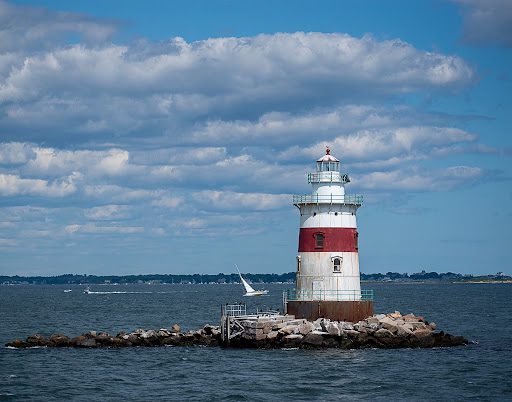The town of New Shoreham, Rhode Island, a municipality and popular New England seasonal destination better known as Block Island became one of the first communities to successfully lobby state leaders to lift a restriction that was limiting the amount of solar power the utility company could purchase from customers. In recent years, Block Island has risen to popularity in the renewable energy world through its state-of-the-art, offshore wind farm, which was installed in 2015.
Block Island is a ten-square-mile island off the coast of America’s smallest state with a modest population of 1,500 residents.
Settled in the 19th century, residents on the remote isle have a long history for self-sufficiency, so it’s no surprise that the on-island utility has taken steps to better use the resources at hand.
This summer, Block Island Power Company (New Shoreham’s leading ratepayer-owned power provider) announced that the state had ousted its cap on “net metering” for the town.
“Net metering” is the process in which utility companies (usually the provider of energy) purchase excess power resources from private households and companies (traditionally the customer in the equation). Although the transaction is untraditional to some, it has increased in frequency over the past decade as a direct result of more private dwellings installing solar panels across the country (this Wisconsin provider launched a similar program).
Logistically, the process is fairly straightforward: homes with solar panels use their private supply of electricity when they are generating enough, and defer to the utility grid when they are not. When they have harvested more energy than needed though, the excess is “put back into the grid” to serve other residents. At the end of the month, the utility then measures the amount of electricity consumed by the customer and the amount said customer supplied the grid with and pays them out the “net.”
Jeffery Wright, president of the Block Island utility, told the press that the ratepayer-owned group is “proud to be one of the few electric utilities that are asking for a net metering cap to be lifted.”
Usually, there is a state-set limit on the amount of energy that utility companies are allowed to purchase from private establishments. In New Shoreham, Rhode Island, that limit was 3% of Block Island Power Company’s peak load. The utility reached that cap 18 months ago and has since had more than 30 additional applications for private citizens to put their solar energy onto the Ocean State island’s grid. Following the power company’s successful lobbying of state legislators and consequently Governor Daniel McKee signing into law SB-22, Block Island will soon be able to set its own upward limit for net metering. The bill also included nearby mainland Pascoag County. The bill officially remains subject to Public Utility Commission approval.
Although the structure of unlimited or relatively unlimited net metering is a win when it comes to renewable energy expansion, not all communities are in a position to adopt programs like this one. Block Island is uniquely poised for its success with such a system because, as mentioned, Block Island Power Company is ratepayer-owned already. This allows an increased level of consumer involvement in their energy planning.

It has yet to be seen how larger communities can adopt similar structures, but for smaller, more manageable municipalities with plenty of sunshine, the publicly-owned option seems one that is gaining momentum. Wright went on to say that he is “a public power champion — whether it is a co-op, muni or utility district — and this recent net metering milestone is an example of why.”





